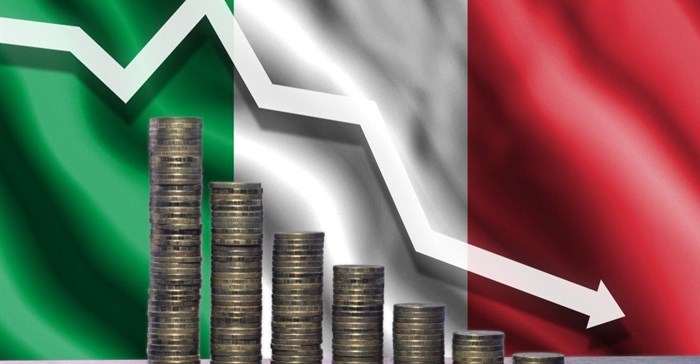How do you predict how robust a country is financially to weather "future shocks" ranging from another global recession to climate change and predicting how likely it is to bounce back from financial setback?
Swiss Re and the London School of Economics have constructed a macroeconomic resilience index that go beyond the traditional GDP growth measures for economic strength, and introduce a systematic approach to quantify insurance protection gaps. Tthe capacity of the global economy to absorb new shocks has waned and is now lower than before the global financial crisis 10 years ago, the paper said.
The survey, which studied 31 developed and emerging economies between the years 2007 to 2018, did not include South Africa as one of its subjects. However, it highlighted Italy, which ranked second lowest out of the 31 countries for its ‘resilience’.
Italy’s lack of resilience
These are the components that the survey said went into Italy’s ranking:
- It faces prolonged economic stagnation, a shrinking population and large “protection gaps” – meaning gaps in insurance coverage for the average citizen
- At 131% of GDP, Italy's public debt is the second highest in Europe. With public finances under severe strain, the state is increasingly shifting the burden of financial protection to individuals.
- This has led to a 10% increase in private insurance pension funds annually over the last decade.
- Recent public-sector incentives have also sparked greater uptake of private natural catastrophe covers.
- Even so, the public and private sectors must do more to improve national resilience against (still) large pension, healthcare and natural catastrophe protection gaps.
SA – a disturbing parallel
There are clearly similarities between Italy and South Africa. Almost point for point, a case can be made to increased frailty in the case of economic shocks:
- South Africa, with its revised 0.5% growth forecast after the Medium Term Budget Policy Statement, faces prolonged economic stagnation. We are also one of the few countries in Africa with an ageing population.
- After the budget speech it seems South Africa’s debt to GDP ratio will be over 70%.
- Recent ASISA figures show that South Africa’s life and disability insurance gap has widened yet again to R34.7trn in 2018 – certainly speaking to “large protection gaps”.
- This means the “large pension, healthcare and natural catastrophe protection gaps” Italy is noted for are eerily like South Africa’s.
Historically plagued with inefficient infrastructure, on-again-off-again corruption scandals involving public servants and government administration and financially very dependent on its tourism industry and yet with a burgeoning and robust insurance industry, Italy may well be likened to the ‘South Africa’ of Europe.
“The difference? Although Italy has been noted for increasing uptake of insurance in the face of government and infrastructure being dependable, South Africa has not. Our country is still chronically underinsured, especially on the life side, despite a very narrow and flimsy social safety net,” says CEO of MiWayLife, Craig Baker.




































